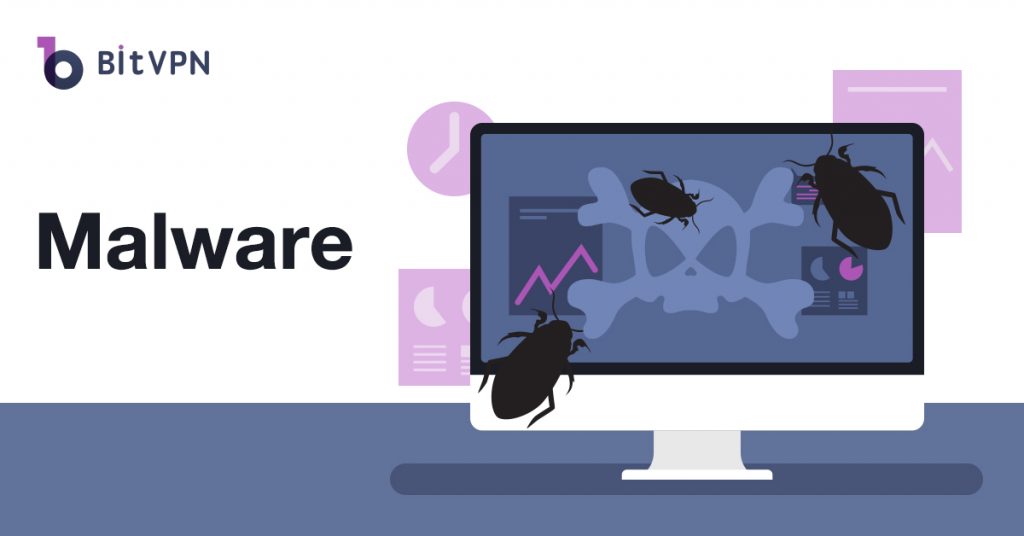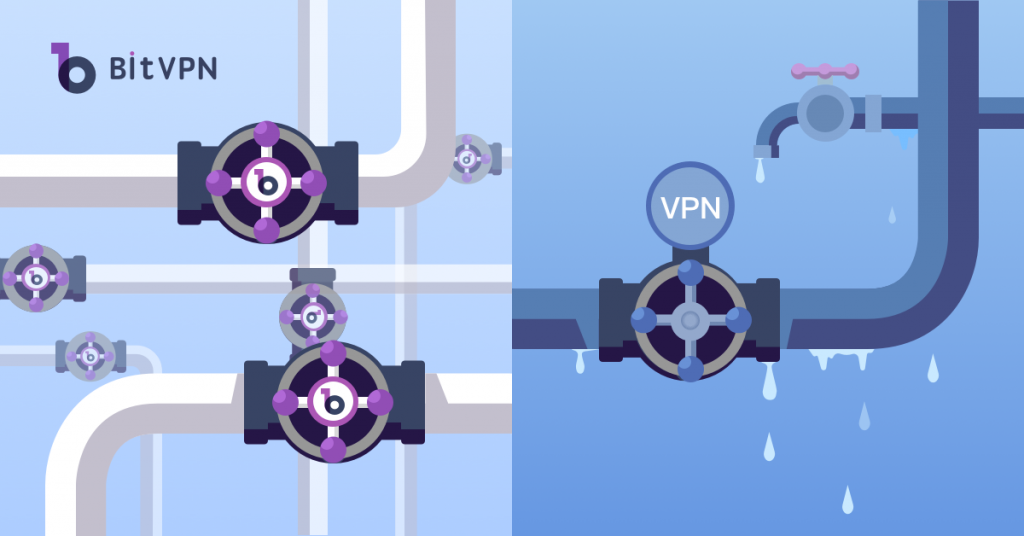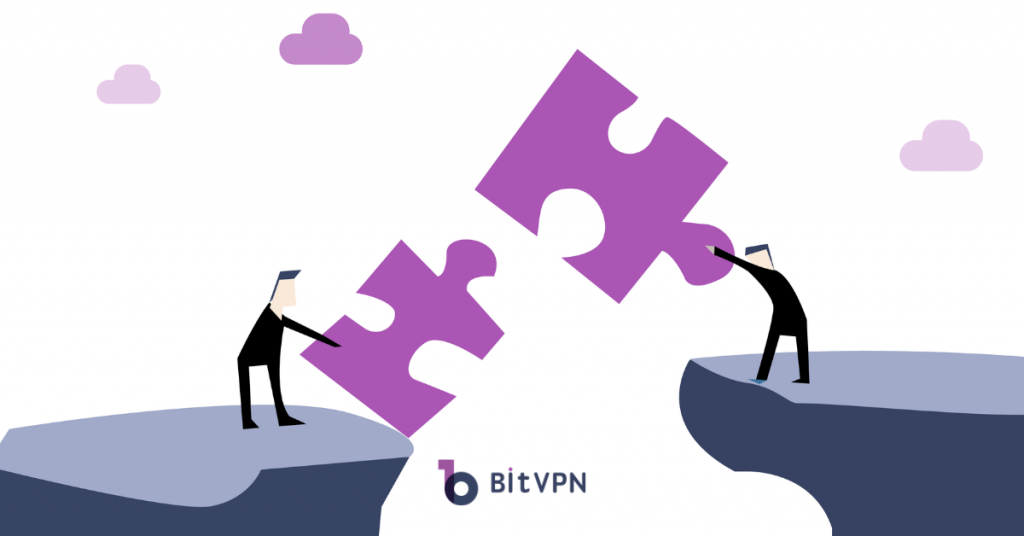Since Virtual Private Networks or VPNs have been widely used as an easy-to-use tool to keep Internet users anonymous online, hide IP address and bypass blocked websites or restricted content, they are also questioned for their reliability. Moreover, July 2020 saw a report on 7 VPNs that leak data belonging to 20 million users, which also arouses VPN users’ doubt on the security of VPNs.
Then, can we still trust VPNs? Is it really able to keep me anonymous online? How much can a VPN hide me from my ISP and government censorship? The top 5 common questions about VPN tracing will be discussed in this article. Remember, knowledge is power, keeping you away from anxiety.
Can I be Tracked if I Use a VPN?
“Can a VPN be tracked or traced?”
“Can I be tracked if I use a VPN?”
Do you ever have or are you just having such questions as a VPN is used on your device?
The questions are a little complex but it’s NEVER impossible to explain clearly.
As you use a VPN, your IP address can’t be used to recognize you since a VPN is capable of hiding your IP address. However, it doesn’t mean your VPN traffic is immune to tracking. Your VPN traffic can still be tracked through the following tunnels:
The IP Address of VPN
The IP address provided by VPN is a virtual one that isn’t difficult to be recognized. There are even databases indicating which IP addresses belong to which provider. When you visit a website with a VPN on, your action of using a VPN will be instantly tracked through your virtual IP address. Therefore, it’s not a smart idea to use an extremely popular VPN since the massive applications tend to make their IP addresses mostly “labeled”.
Nevertheless, stop being so anxious, though. Even if your behavior of using a VPN is exposed, nothing will be traced but a fact that you’re using a VPN while they fail to reach anything about YOU.
Port Number
Some VPN protocols establish connections based on the specific port numbers that can be easily recognized. For example, the port number usually used for OpenVPN (UDP) is 1194, and OpenVPN (TCP) 443 and once it gets tracked, the specific VPN protocol will be instantly known and hackers will easily track your “footsteps” on the Internet.
This situation will be much worse than the former since protocols are the main reasons why a VPN is able to hide your online activities from your ISP and government censorship. Once they get hacked, the encrypted tunnel created by your ISP provider will become transparent so that all your browsing activities will be tracked by hackers.
Deep Packet Inspection
Deep Packet Inspection, also called DPI, refers to a process during which each packet is examined. It contains a lot of applications, such as blocking spam emails or malware. Nevertheless, it can be used to recognize VPN traffic. It’s the Chinese government that shields VPN traffic through DPI.

Can My ISP Block the VPN that I’m Using?
Unfortunately, your ISP is capable of tracking your VPN connection and they can see the following content of yours online:
- Connection Source (Your IP Address)
- Connection Target (VPN Server IP Address)
- Time Duration with VPN On
- Data Amount You Transmit to VPN Server
- The Port You Use for Connection
Then, can my VPN really hide my visited websites?
In one word, your ISP is able to track that you’re using a VPN but they can hardly block the VPN you’re using.
However, it’s possible that your VPN will be blocked by your visiting websites or applications. For example, it usually occurs that VPNs may be blocked by Netflix that strives to protect their streaming catalogs. However, there are still VPNs that are capable of beating the Netflix VPN ban and still working.
Can My VPN Really Hide My Browsing History?
A traditional VPN is able to hide your browsing history on Google to some extent. With a traditional VPN connection, you can still be recognized when entering searching keywords. Google features a search engine and collects all searching history so that your searching history is transparent and can be used to link to your identity.
As long as you’ve registered a Google account and login in when using it, your VPN won’t mask your real identity if it’s a centralized one. Therefore, it’s a good idea to logout into your Google account to hide your browsing history on it.
Moreover, complicated detecting algorithms and monitoring technology are used by Google to recognize searchers, which is why a traditional VPN can only partially hide users’ browsing history.
Can My VPN Really Make My IP Anonymous?
That depends on your anonymity level and what type of VPN you’re using. If you’re using a decentralized VPN instead of centralized VPN, the answer is absolutely YES!
No matter a centralized or decentralized VPN, it’s equivalently difficult to keep 100% anonymous online because there are so many methods or tunnels to expose your identity and geological location.
Your IP may fail to be kept anonymous mainly because of your ISP, government surveillance, websites, social platforms, browsers, your mobile service provider, etc.
Does My VPN Hide Me from the Government Censorship?
Does my VPN hide me from government censorship? Or can I be tracked by the government through the VPN I’m using?
The federal government wouldn’t spend time tracking ordinary people’s online activities all day. However, if some behaviors against laws are found, the federal government will ask for their online logs through ISPs. If the ISPs test a VPN is used, the government will go for the VPN service provider for the logs of users’ online activities.
So, even though some VPN service providers claim they never log users’ data, it’s still unreliable because you know your data is absolutely in their hands. It’s hard to estimate whether your data will be leaked. After all, all users’ data are kept in the centralized server. If it gets hacked, all the data will be leaked.
The optimal solution to data leaks lies in decentralized VPN that scatters your data to different nodes on the way from your device to the target. Each node on the way carries your partial data and even if one node gets hacked, it’s difficult to decode the data due to encryption. Even if it gets decrypted, you only get your partial data lost while the majority are still safe.

Finally, does a VPN Really Protect You?
Yes, as long as a decentralized VPN is used.
BitVPN is a truly decentralized VPN, covering the following advantages:
- P2P Mesh Network
- Unstoppable
- Strict No Logs
- Blockchain Based
- Encrypt Your Data and Protect Your Privacy
- Impossible Data Scrambling
- Truly Anonymous Online
- How to Tell if Someone is Spying on My Phone and How to Stop That
- Ask Your Employees These Questions to Easily Test Their Cybersecurity Awareness
- What’s Computer Hacking and How to Prevent It
- What is Ransomware? Everything You Should Know About Top 1 Possible Cyberattack in 2021
- Affected by Facebook Leak? How to Stay More Private on Social Media
